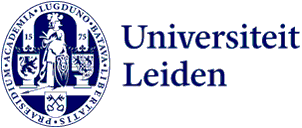
Debate on World Cup Qatar: Boycott it or seize opportunity for attention?
The FIFA World Cup will get underway in Qatar this November – an event that has attracted much discussion in recent years. This discussion is not only centred on sport. Human rights are in the spotlights in Qatar. On Friday 30 September, Leiden University organised a debate in which experts from various disciplines shed their light on this sports event.
The Wijnhaven building in The Hague was the location for the debate which was organised by Assistant Professor in International Relations Vera Scepanovic of the Faculty of Humanities, Leiden University. Speakers were Gijs de Jong (Secretary General of the Royal Netherlands Football Association (KNVB)), Gert-Jan Segers (party leader and MP for the ChristenUnie), Max Tuñón (head of the International Labour Organization (ILO) in Qatar), Petra Bolster (board member of the Dutch trade union FNV), and Rick Lawson (Professor of International Law at Leiden University).
Stefaan Van den Bogaert, Vice Dean of Leiden Law School and Professor of European Law, acted as moderator and introduced the topic. ‘The FIFA World Cup is perhaps the biggest sports event in the world. You'd expect that the whole world is eagerly looking forward to it. How will the Netherlands do? Will England finally get over its penalty syndrome? But the talk is all about boycotts, accusations of fraud in relation to getting to host the World Cup, and violations of human rights. What can we do about this? Are we obliged to do something? And who must act then? The FIFA? The national football associations? The national governments? Footballers? The public?’
Not a supporter
Gert-Jan Segers, however, disagrees. ‘I love football, but justice and human rights are more important than my love of football. We will have the World Cup in Qatar and it's a shame that it's to be held there.’ Segers believes that representatives from the Dutch Government and Dutch supporters should not go to the World Cup. ‘Don't go there. It's a disgrace. “The show must go on”, but at least make visible that it's a painful event’. According to Segers, the massive absence of supporters would be a very clear statement.

Milestones
Then it was Max Tuñón’s turn, who joined the debate via a livestream. He explained that the ILO has had an office in Qatar since 2017. ‘We see tremendous progress in Qatar. But by no means does that mean that the situation is perfect. We know where the gaps are. In recent years, we've achieved milestones. The spotlights now on Qatar have accelerated these labour reforms. But a lot of work is still to be done.’
Petra Bolster opened her argument by saying 'Immediately after the World Cup was granted to Qatar, the FNV said “boycott this world cup”. Now, speaking with the migrant workers there, they are telling us: “please put the spotlight on Qatar, and keep on doing that after the circus has left town”. Anything that we can do, as a society, we should do, to make it better.’
'We have to make the best of it'
Rick Lawson was the final speaker and he considered the issue from a legal perspective. ‘Since the 1970s Qatar has ratified a number of human rights conventions and treaties. So it is clear that Qatar cannot claim that human rights are a matter of internal affairs or domestic jurisdiction. We must try to make the best of the situation. According to our constitution, we have the obligation to promote international legal order. This may guide our government and our King by deciding whether or not to go to Qatar.’ The professor concluded with some advice: use the spotlight to draw attention to the situation in the country, call on the authorities in Qatar to comply with the international treaties to which they have signed up and, above all, let us look at our own role.
Afterwards, there was ample opportunity for the students and other interested parties present to ask questions. A lively discussion thus concluded an inspiring meeting.
Photos: KNVB
